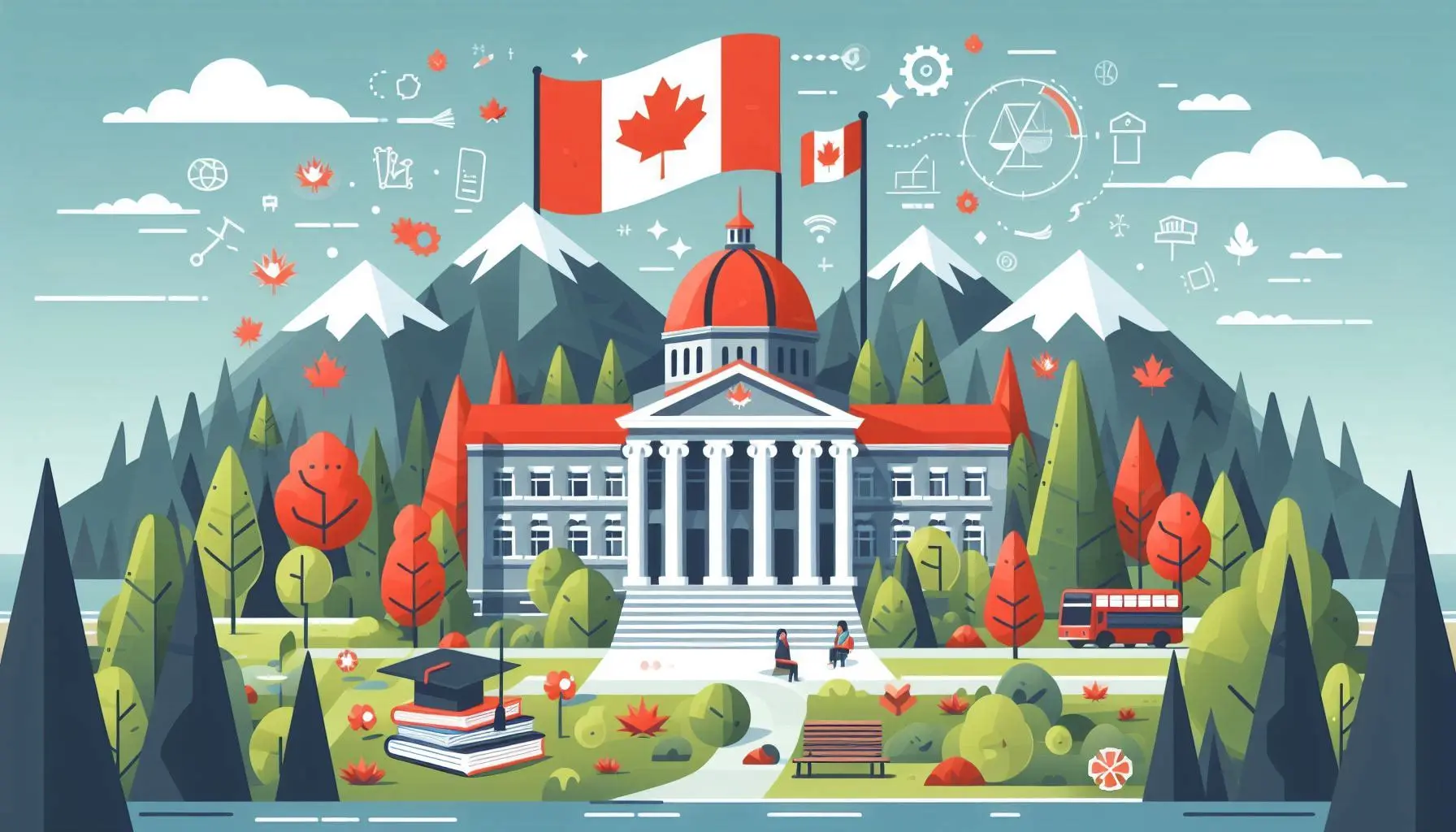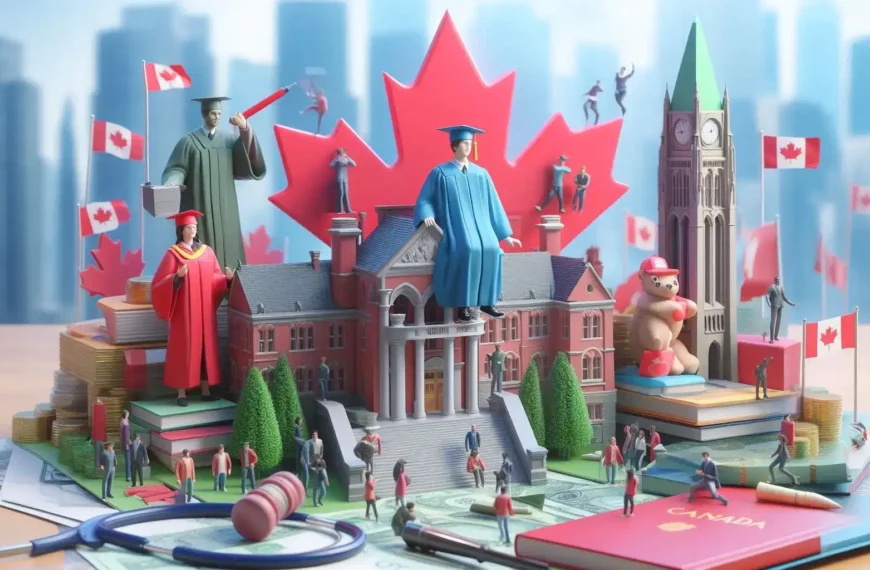By pursuing graduate studies, you can expand your knowledge and skills that you learned throughout your undergraduate studies.
It’s not surprising that,
Canada is one the most popular destinations for international students globally, with three of its cities ranked as the best places to live and study.
If you’re planning to study for a master’s degree, I recommend this article in which we discuss the Best courses in Canada to get PR.
Today, we’ll explore the requirements for master degree in Canada for international students.
So, Let’s get started!
Admission Requirements for Masters Degree in Canada for International Students
Admission or academic requirements for master degree in Canada for International students depending upon the choice of university and programs.
These are the general admission requirements for pursuing master’s in canada for international student as below:
- Bachelor’s Degree
- Transcripts
- English Proficiency Test
- Letter of Recommendation
- Statement of Purpose
- Cv/Resume
- Entrance Exams
- Financial Documents
- Additional Requirements
1. Bachelor’s Degree
If you are applying to a masters program in Canada, you’ll need to complete your four year undergraduate degree (or equivalent) from the recognized institution with a required minimum GPA.
University or college may ask you to submit the bachelor’s degree certificate at time of application in appropriate format (PDF, or PNG), properly scanned.
2. Transcripts
Transcripts are basically official documents issued by the previous institution you attended, showing a summary of your academic performance and the courses you have completed.
You’ll need to provide the official transcript from all the post secondary institutions you have attended (Diploma, or 12th and undergraduate programs) at the time of online application.
Some colleges and universities may ask you to submit the official transcripts through the institution’s official email or by mailing them in a sealed envelope.
3. English Language Proficiency
As we know, English is the primary language in Canada. You need to demonstrate proficiency in the English Language.
Each university and college sets its own minimum scores for admission, which may also vary depending upon the course you applied for or field of study.
You can choose from standardized tests such as TOEFL, IELTS, PTE or Duolingo for admission.
I recommend you to opt for the IELTS Academic exam with a minimum score of 6.0 or 6.5 bands for smoother admission and visa processing.
4. Letter of Recommendations
For a Master’s degree application, you need two or three letters of recommendation from academic sources.
Alternatively, if you have work experience, you can submit two academic letters and one from your previous employer.
These letters should discuss your abilities and suitability for graduate study, on official letterhead with a signature and stamp.
5. Statement of Purpose
Statement of Purpose(SOP) is also referred to as Personal Statement.
Universities and colleges in Canada may ask you to write a letter which outlines your academic and career goals, as well as your interest in the specific program or field of study for which you have applied.
6. Cv/resume
Some programs may require you to submit a resume or curriculum vitae (CV) that showcase your educational background, work experience, and any relevant achievements.
7. Entrance exams
If you’re applying to STEM (science, technology, engineering and mathematics) programs. You may be required to submit the entrance exams such as GRE (Graduate Record Examination) and GMAT (Graduate Management Admission Test) for management studies.
Make sure to check with the official site for a specific program because not all programs require the submission of entrance tests.
8. Financial Documentation
Some colleges and universities may require you to submit a bank balance certificate or proof of funds to demonstrate that you have enough financial resources to cover your tuition fees and living expenses in Canada.
9. Additional Requirements
Some programs may have additional requirements such as portfolios (for art or design programs), interviews, or specific prerequisite courses.
Tip: Make sure to review the program requirements and eligibility criteria by visiting the official website of the university or college you applied to.
How long is masters degree in Canada
Masters Degree in Canada for international students is for 1 to 2 years graduate program.
There are three types of masters degree in Canada for you:
- Course-based master’s takes 10 to 12 months to complete.
- Master’s with research paper takes 12 to 18 months to complete.
- Master’s thesis takes 24 months to complete.
Also Read: Best Course in Canada to get PR
Document Requirements for Masters Degree in Canada for International Students
If you’re International Students pursuing masters in Canada, you need the following documents to study in Canada.
- Degree Certificates
- Academic transcripts
- Result of english proficiency test
- GMAT or GRE official result (if applicable)
- Academic CV or Resume
- Letters of recommendation (usually two letters)
- Statement of purpose
- Valid passport
- Study Permit/Visa
- Proof of Funds (bank statement, GIC)
1-Year Masters Degree in Canada With 3-Year Work Permit
According to the new IRCC reforms, students who have finished a one year master’s degree will be eligible for a three-year PGWP (Post Graduate work Permit) beginning February 15, 2024.
And the best part is, One year master degree is faster and less expensive compared to two-year postgraduate diplomas, you can begin your job one year earlier, compared to students in two-year programs and getting Canada PR even easier.
| University | Programs |
|---|---|
| Crandall University | Master of Organizational Management |
| Lakehead University | Master of Science in Management Master of Science in Computer Science Master of Business Administration |
| Laurentian University | Master in Business Administration Master of Forensic Science (Forensic Science, Molecular Biology, Chemistry/Toxicology) Engineering Science |
| Nipissing University | Master of Arts in History (Gender History, European History, Environmental History, International History, Canadian History) |
| Ontario Tech University | Master of Business Analytics and AI |
| Royal Roads University | Master of Global Management |
| Thompson Rivers University | Master in Environmental Economics and Management Master of Science in Environmental Economics and Management Master of Business Administration |
| Toronto Metropolitan University | Master of Interior Design Master of Arts in Immigration and Settlement Studies Media Production Master of Professional Communication Master of Science in Data Science and Analytics Master of Arts in Early Childhood Studies Master of Arts in International Economics and Finance Master of Spatial Analysis Master of Social Work Master of Digital Media |
| Trent University | Master of Management: Strategic Change Management Master of Management Master of Education in Educational Studies Master of Arts in Sustainability Studies Master of Instrumental Chemical Analysis Master of Arts in History Master of Arts in Canadian Studies and Indigenous Studies Master of Science in Forensic Science |
| University of Alberta | Master of Engineering – Chemical and Materials Engineering Master of Business Administration (Fast Track) Master of Engineering in Electrical and Computer Engineering Master of Science in Earth and Atmospheric Sciences Master of Engineering in Electrical and Computer Engineering |
| University of Manitoba | Master of Finance Master of Business Administration |
| University of New Brunswick | Master in Quantitative Investment Management Master of Business Administration |
| University of Ottawa University of Prince Edward Island University of Regina University of Saskatchewan | Master of Business Administration |
| University of Northern British Columbia | Master of Arts in Gender Studies |
| University of Regina | Master of Science in Computer Science Master of Journalism |
| University of Victoria – Kaplan | Master of Global Business Master of Arts in English Master of Arts in Economics Master of Management |
| University of Windsor | Master of Arts in Political Science Master of Applied Computing Master of Education |
| Wilfrid Laurier University | Master of International Public Policy |
Cost of Studying Masters Degree in Canada for International Students
If you know the requirements and eligibility for masters in canada for international students, now it is important for you to ensure how much it will cost you to study masters in canada.
- Tuition fees: Generally, a masters program costs you from approximately $20,000 CAD annually depending upon the program of study and university.
- Cost of living: You can access a GIC (guaranteed investment certificate) amount of at least $15,000 CAD per year, to cover the cost of living expenses including accommodation, transportation, food and other essentials in Canada.
How to Fund Your Masters Degree in Canada
Even with the affordable rate of higher education in Canada, a lot of Students may not be able to fund their studies.
International Students can use the following funding options to cover the cost of tuition and even living expenses.
Scholarship
There are different ways to get scholarships for masters in Canada. Mainly three types are as follows:
- Canadian Government Scholarship
- Non-governmental Scholarship
- Canadian Institutions Scholarship
Student Loans
Student loans can be the best way to finance your masters degree in canada. You can apply for a student loan to fund your education.
Work-Study Program
Most of the universities or colleges in Canada have work study programs, which means you can work and earn while studying as an international student.
Universities offer on-campus job opportunities for international students or you can work off-campus with a valid study permit.
How to apply to study for a Masters Degree in Canada for International Students
Step by step Guide on applying for a Master’s Degree in Canada for International Students:
Step 1. Choose a program: Make sure the choice of your program aligns with your bachelor’s degree.
Step 2. Check application requirements: Check out the course curriculum, application deadline, requirements, and fees on their official website.
Step 3. Create an account: Create an account from the university portal or official website and Fill out your application form more precisely to avoid delay or rejection.
Step 4. Gather the required documents: Submit all the required documents carefully as per the instructions in this article.
Step 5. Submit application: Once you upload all the required documents. You will need to pay a non refundable application fee.
FAQs: Requirements for Masters Degree in Canada
Which master’s degree is most in demand in Canada?
The most in-demand master’s degrees in Canada often include fields such as computer science, engineering, business administration, and healthcare management. These areas align with Canada’s growing industries and job market demands.
How long can I stay in Canada after 1 year of masters?
After completing a one-year master’s program in Canada, international students are typically eligible for a post-graduation work permit (PGWP) valid for up to three years. This permit allows them to stay and work in Canada temporarily, gaining valuable work experience related to their field of study.
Which jobs has highest salary in Canada?
Some of the highest-paying jobs in Canada include positions in sectors such as healthcare, technology, engineering, finance, and management. Specific roles like physicians, IT managers, engineering managers, financial managers, and senior executives tend to command high salaries in the Canadian job market.
Do you need 16 years of education for masters in Canada?
Most universities require applicants for Master’s programs to have completed a four-year undergraduate degree (equivalent to 16 years of education) or its international equivalent. However, some programs may accept applicants with a three-year bachelor’s degree, provided they meet additional requirements or have relevant work experience.
What is the age limit to do Masters in Canada?
There is usually no age limit for pursuing a Master’s degree in Canada. Admission is based on meeting academic requirements and program prerequisites, rather than age. As long as you fulfill the criteria, you can apply for a Master’s program regardless of your age.












